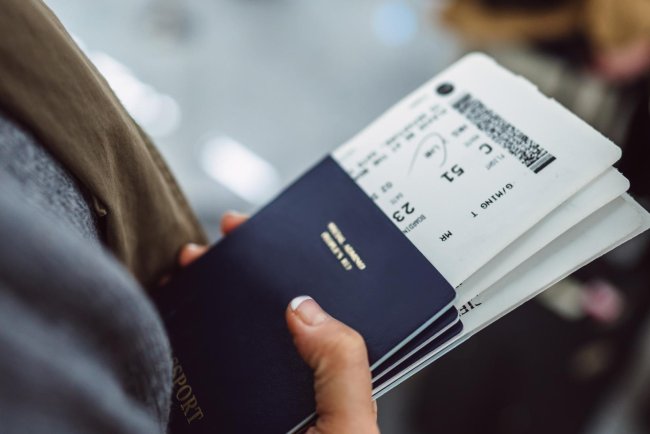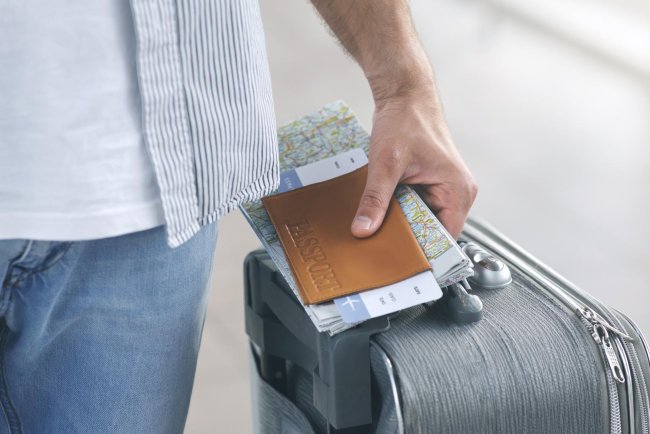FAQs for "What to Do If You Lose, Forget, or Run Out of Your Prescription Medication on Vacation"
1. What should I do if I lose my prescription medication during my vacation?
If you lose your prescription medication while on vacation, the first step is to stay calm. Assess how urgent it is for you to get a replacement dose. Contact your prescribing doctor or pharmacist to let them know what happened. They may be able to call in a new prescription to a local pharmacy near you. If you’re in a different country, your doctor might provide advice specific to the local health system. Additionally, locate a nearby pharmacy where you can ask for help.
2. Can I get an emergency refill of my prescription medication while traveling?
Yes, it is often possible to get an emergency refill of your prescription medication while traveling. Many pharmacies, especially in the U.S., can provide a short-term emergency supply if they can verify your prescription with your home pharmacy or doctor. Be sure to have your doctor’s contact details handy, as well as identification, and be ready to provide necessary health insurance information. Keep in mind that emergency refills depend on the type of medication, so it’s best to consult the local pharmacy for specific guidance.
3. What documents should I carry when traveling with prescription medications?
When traveling with prescription medications, you should always carry the following documents:
- A copy of your prescription, including the generic names and dosage.
- A letter from your doctor explaining your medical condition and why you need the medication, particularly if you’re carrying controlled substances.
- Your health insurance card and any international coverage information.
- A detailed list of all your medications, their dosages, and frequency of use.
These documents can be extremely helpful if you lose your medication, need an emergency refill, or are questioned by customs or security officials.
4. What if I forget to bring my medication on vacation?
If you realize you’ve forgotten to bring your medication on vacation, contact your prescribing doctor or pharmacist as soon as possible. They may be able to send a new prescription to a pharmacy near your travel destination. You can also look into telemedicine services to consult with a doctor and get a prescription filled locally. Be sure to visit a nearby pharmacy and explain the situation. It’s always a good idea to have a copy of your prescription with you, just in case.
5. Can I get my prescription filled in a foreign country?
In many cases, yes, you can get your prescription filled in a foreign country. The process varies by country, but most have pharmacies that can dispense medication if you provide proof of your prescription. Some countries have agreements with the U.S. or other nations to honor foreign prescriptions, but you may need to see a local doctor to get a replacement prescription. Always check local pharmacy regulations, and carry a copy of your prescription and a doctor’s note explaining your condition.
6. How do I find a pharmacy in a foreign country?
To find a pharmacy in a foreign country, you can start by asking for recommendations from your hotel staff or using map apps like Google Maps to locate nearby pharmacies. Most tourist areas and major cities will have easily accessible pharmacies. If there is a language barrier, use a translation app to communicate your needs or ask a local guide for assistance. Be sure to bring your prescription and any relevant documentation.
7. What should I do if I run out of medication while traveling?
If you’re running low on medication while traveling, plan ahead by contacting your doctor or pharmacist to arrange a refill before running out completely. You can also check if your health insurance covers international refills. Many pharmacies may provide an emergency supply if they can verify your prescription. If you’re unable to get a refill from a local pharmacy, consult a local doctor or use telehealth services to get a new prescription.
8. What is telemedicine, and how can it help if I lose my medication on vacation?
Telemedicine allows you to consult with a licensed healthcare provider remotely, often through video or phone calls. If you lose or run out of your medication on vacation, telemedicine services like Teladoc or MDLIVE can connect you with a doctor who can advise you on your options and even send a prescription to a nearby pharmacy. This service can be especially helpful if your regular doctor is unavailable or if you’re in a foreign country.
9. Can I bring my prescription medication on a plane?
Yes, you can bring your prescription medication on a plane, but it’s recommended to carry it in your carry-on luggage rather than checked baggage. Make sure your medication is in its original packaging with the prescription label clearly visible. If your medication requires refrigeration or other special storage conditions, bring an insulated bag or cooler. It’s also a good idea to carry a copy of your prescription and a doctor’s note in case security or customs officials need clarification.
10. What should I do if my medication is lost during air travel?
If your medication is lost during air travel, notify the airline as soon as possible. They may be able to recover it if it was left on the plane or in a checked bag. In the meantime, try to locate a pharmacy in the airport or your destination. Some international airports have pharmacies or medical clinics that can assist with emergency prescriptions. If you have travel insurance, contact them for further assistance in retrieving or replacing your medication.
11. What are the best ways to prevent losing my medication while traveling?
To prevent losing your medication while traveling, follow these tips:
- Always pack your medication in your carry-on luggage.
- Keep it in its original packaging with the prescription label intact.
- Carry a backup copy of your prescription.
- Pack extra doses in case your trip is extended or you experience delays.
- Use a pill organizer to keep track of doses, but carry it along with the original bottle.
- Consider using a luggage lock or other secure storage if you’re staying in a hotel room or shared space.
12. What should I do if I can't find my exact medication in a foreign pharmacy?
If the exact medication you're prescribed isn’t available at a foreign pharmacy, talk to the pharmacist about alternatives. They may be able to provide a similar drug that contains the same active ingredients or suggest a temporary substitute until you return home. It’s important to contact your doctor for advice before taking any substitutes, as some medications may interact with other drugs or have different side effects.
13. Will my health insurance cover prescriptions abroad?
Whether or not your health insurance covers prescriptions abroad depends on your specific policy. Some insurance plans include international coverage, while others do not. Before your trip, check with your insurance provider to see if they will cover prescription refills abroad. They may also have a list of partner pharmacies or international health services you can use while traveling.
14. Can I transfer my prescription to a pharmacy at my vacation destination?
In many cases, you can transfer your prescription to a pharmacy at your vacation destination, especially if you're traveling within the same country. Contact your home pharmacy and ask them to transfer the prescription to a local branch or another pharmacy nearby. If you're abroad, this might be more complicated, but some international pharmacy chains may be able to access your prescription information if you provide identification and your doctor’s contact details.
15. What should I do if my prescription medication is a controlled substance?
If your prescription medication is a controlled substance, it may be subject to stricter regulations abroad. Always carry your medication in its original packaging with a doctor’s note explaining your condition. Some countries have specific rules about controlled substances, so research the regulations of your destination before traveling. If your medication is lost, you may need to visit a local doctor to get a new prescription, as pharmacies abroad may not accept foreign prescriptions for controlled substances.
16. Can I get a prescription without seeing a doctor in a foreign country?
In some cases, you may be able to get an emergency prescription without seeing a doctor, depending on the country and the medication. Many countries have pharmacies that can provide certain medications over-the-counter without a doctor’s visit. However, for most prescription medications, especially controlled substances, you'll need to see a local doctor to get a new prescription. Telehealth services can also be a useful alternative if you’re unable to visit a local doctor.
17. What happens if I miss a dose of my medication while on vacation?
If you miss a dose of your medication, consult your doctor or pharmacist for specific advice based on your medication type. For some medications, missing one dose may not be a significant issue, but for others, such as blood pressure medications or antibiotics, missing a dose could impact your health. In many cases, it’s advised to take the missed dose as soon as you remember, but always follow professional guidance to avoid complications.
18. Can I bring more than the necessary amount of medication on vacation?
Yes, it’s a good idea to bring extra medication when you travel. This ensures you won’t run out if your trip is extended or delayed. It's recommended to bring at least a week's worth of extra doses. Keep the extra medication in your carry-on luggage and, if possible, store it in a different location from your main supply (such as a travel partner’s bag) to avoid losing everything at once. Be mindful of any storage instructions for temperature-sensitive medications.
19. Are there specific rules for traveling with liquid medications?
Yes, liquid medications are subject to specific rules when traveling, especially if you're flying. The TSA allows liquid medications over 3.4 ounces in your carry-on luggage, but they must be declared at the security checkpoint. It’s important to keep them in their original containers and carry a copy of your prescription. If your medication needs to be refrigerated, use a small insulated bag or cooler.




















